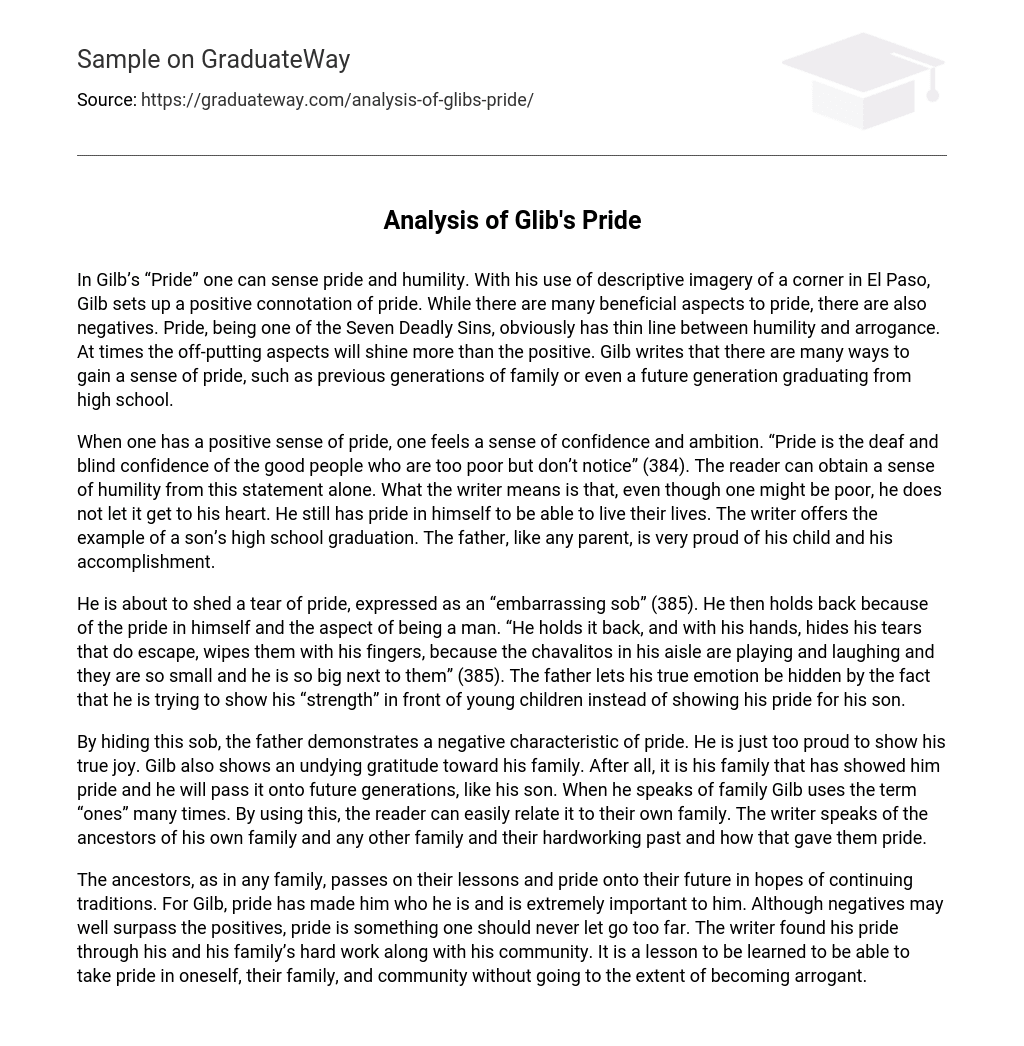In Gilb’s “Pride,” the presence of both pride and humility is evident. Through vivid descriptions of a corner in El Paso, Gilb creates a positive connection with pride. However, pride, being one of the Seven Deadly Sins, can sometimes lead to arrogance rather than humility. Despite its advantages, negative aspects of pride can overshadow its positive qualities. According to Gilb, there are different ways to experience a sense of pride, such as through ancestral heritage or future generations’ high school graduation.
Having a positive sense of pride leads to confidence and ambition. According to the writer, pride is like being deaf and blind for good people who are too poor but fail to realize it (384). This implies humility as individuals in poverty still maintain their pride and carry on with their lives. The writer gives an example of a father who takes immense pride in his child’s high school graduation, just like any other parent would.
The father is holding back tears of pride, which he refers to as an “embarrassing sob” (385). However, he controls himself because of his pride and the expectation of behaving like a man. “He suppresses it, hiding his tears with his hands and wiping them away with his fingers. He does this because the little ones in his row are playing and laughing, and they are so small while he stands tall next to them” (385). Instead of openly expressing his pride for his son, the father chooses to conceal his true emotions by putting up a facade of strength in front of the young children.
The father’s decision to conceal his emotions highlights his arrogant display of pride. He lacks the humility to openly express his genuine happiness. In addition, Gilb expresses his unwavering appreciation for his family. It is his family that has instilled in him a sense of pride, and he intends to pass it down to future generations, including his son. Gilb frequently refers to family as “ones,” allowing readers to easily relate it to their own kin. The author also reminisces about the ancestors of not only his family but all families, emphasizing their diligent history and how it contributed to their sense of pride.
The ancestors, as in any family, transmit their teachings and pride to upcoming generations to preserve traditions. For Gilb, pride is a vital element of his identity and carries immense importance. Despite the existence of more downsides than upsides, it is crucial not to allow pride to become excessive. The author unearthed his sense of pride through his own efforts, along with those of his family and community. It is a lesson that must be learned – embracing pride in oneself, one’s family, and one’s community without venturing into arrogance.





